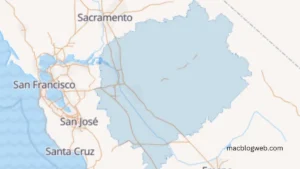Key Takeaways
- Voter education is crucial for a functioning democracy.
- Access to clear and unbiased educational resources empowers citizens.
- Understanding voter rights fosters more significant participation in elections.
- Accurate candidate information helps voters make informed choices.
Table of Contents
- What is Voter Education?
- Why Voter Education Matters
- How to Access Voter Information
- Voter Rights and Responsibilities
- The Role of Educational Institutions
- Community Initiatives for Voter Education
- Future Trends in Voter Education
What is Voter Education?
Voter education includes programs to inform citizens about the voting process, registration, polling locations, and the significance of elections. Accessing reliable local election candidate information is essential for making informed decisions at the ballot box. These initiatives seek to guarantee that every eligible citizen can exercise their right to vote with assurance and clarity by providing them with the necessary information.
Why Voter Education Matters
Voters with more significant information are likelier to cast ballots and make choices that align with their beliefs and preferences. Because knowledgeable voters select elected people, there is a greater likelihood of a more effective and representative government. The impacts of misinformation, which spreads swiftly and can confuse or mislead voters, are also lessened by voter education. With so many information sources at their disposal, voters must have access to impartial, factual information to make well-informed choices. Voter education also helps people understand their civic duties and the value of actively participating in politics. People are more inclined to vote and participate in other civic activities, like town hall meetings or pushing for policy changes when they feel informed and empowered.
How to Access Voter Information
Accessing voter information is easier than ever, thanks to online resources and the increasing availability of digital tools. Websites maintained by election commissions and civic organizations provide comprehensive guides on voter registration, polling locations, and candidate biographies. For example, the U.S. Government’s official website offers resources that cover everything from state-specific voting laws to absentee ballot requests. These platforms are invaluable for ensuring that voters have access to accurate and up-to-date information. Community organizations often provide additional resources, such as informative workshops, voter guides, and helplines to answer voters’ questions. Reliable sources of local election candidate information are crucial for understanding your options and making confident choices, allowing voters to decide based on factual information rather than hearsay or incomplete data.
Voter Rights and Responsibilities
Every citizen has the right to vote, but with this right comes the responsibility to be informed. Knowing your voter rights can help ensure your vote counts and prevent disenfranchisement. These rights include the ability to vote in secret, to receive assistance if needed, and to have your vote counted without discrimination. Familiarize yourself with your state’s specific voting laws, as these can vary significantly from one state to another. It is also essential to understand the voting responsibilities, such as registering before the deadline, knowing the location of your polling station, and bringing the necessary identification. By being prepared and informed, voters can help ensure a smooth and efficient election process. If you encounter issues on election day, such as long lines, malfunctioning voting machines, or attempts at voter intimidation, report them to your local election office or a voter protection hotline immediately.
The Role of Educational Institutions
Schools and universities play a significant role in voter education. By integrating civic education into their curricula, these institutions can prepare future generations to be informed and active participants in democracy. Classroom discussions, mock elections, and involvement in student government can all contribute to a deeper understanding of the electoral process and the importance of voting. Additionally, educational institutions can host events such as voter registration drives, debates, and guest lectures from political experts to engage students further. These initiatives help instill a sense of civic duty and empower young people to participate actively in their communities. By providing students with the tools and knowledge to navigate the voting process, educational institutions contribute to developing a more informed and engaged electorate.
Community Initiatives for Voter Education
Community organizations often spearhead initiatives that promote voter education. These groups work tirelessly to ensure citizens have the information to vote confidently. Initiatives may include hosting informational workshops, creating and distributing voter guides, organizing town hall meetings, and offering one-on-one assistance to those who need help navigating the voting process. Community groups also play a crucial role in reaching marginalized communities where access to voter information may be limited. These organizations can effectively disseminate information and encourage voter participation by partnering with local leaders and utilizing trusted networks. Grassroots efforts are essential for fostering a culture of civic engagement and ensuring that all voices are heard in the democratic process.
Future Trends in Voter Education
Technology is the key to the future of educating voters. Creative approaches like mobile applications and social media strategies are becoming vital in engaging younger voters. These platforms enable quick information sharing and can involve users with interactive elements, reminders, and real-time updates. Virtual reality experiences and interactive platforms can provide interesting methods to educate people about their voting rights and the significance of their involvement. Moreover, artificial intelligence and data analytics can assist in customizing voter education initiatives for particular communities, guaranteeing that information is pertinent and easily understandable. Remaining up-to-date with educational materials and utilizing these technological advancements can help guarantee a dynamic and diverse democracy for upcoming generations. As we progress in creating and utilizing new tools, maintaining a focus on accessibility and accuracy is essential to ensure all citizens have the necessary information to engage in democracy effectively.








